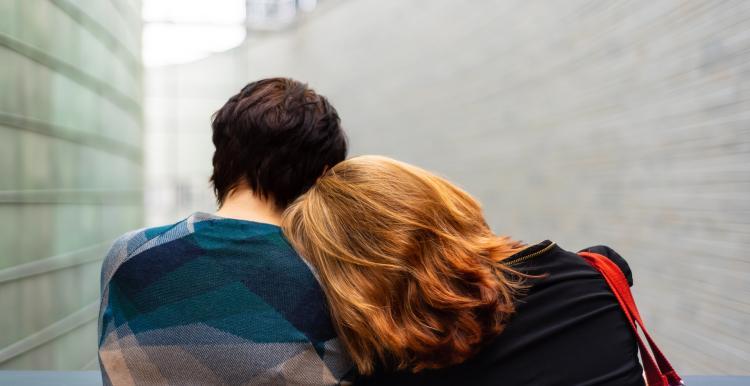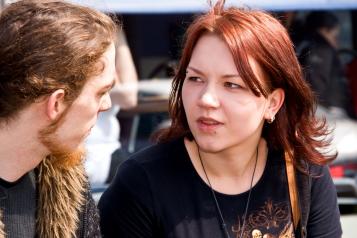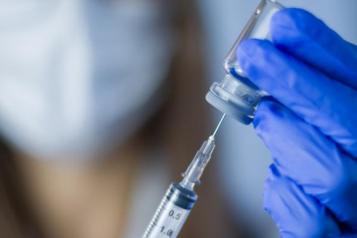Bury Sexual Health Service

We held a live on 14th April with guest speakers from the Bury Sexual Health Service. You can view the video below or on our YouTube channel.
A lot of good information was shared about sexual health services in Bury. Contact information and clinic opening times can be found at the bottom of this page.
What are the different forms of contraception?
- Contraception is a group of medicines or methods prescribed to prevent unplanned pregnancy. There are currently 13 methods of contraception which range from more permanent solutions like sterilisation, often offered later in life to both men & women, to Long-acting reversable methods referred to as LARC including Implants, Coils – smaller version now designed for YP & Depo injections, to pills, patches, rings, caps, diaphragm & condoms both female & male. Emergency contraception is also widely available.
- Clinics in different areas may not stock every method but you can call up & ask or contact your GP. Contraception is personal preference & choice (dependant on medical history) all information is given including advantages & limitations, & we always stress there will be a settling in period. Some methods are more invasive than others, but the nurses are young person centred & help to reassure & provide support around their decision.
- We also stress that if young people are exploring sexual contact, it is often for fun & pleasure rather than reproduction so it is a way of reducing worry, consensual sexual experiences will not be fully enjoyable if one or both of the parties are worried about pregnancy. We also encourage talking to an adult about this if possible.
- Discussion also happens with all types of relationships e.g. - same sex & pansexual relationships - as gender presentation/orientation may be different to their current anatomy, it is important to understand what sex people are having & who with to give the right information & to also prevent STI’s.
What is consent?
- Consent is complex with so many layers which is why it is so important to discuss with young people at every opportunity.
- Basically, in its simplest definition is the giving & gaining of permission when interacting with another person. During our consent sessions we discuss the law in relation to age & sexual contact plus image sharing which is often misunderstood.
- We also discuss personal space & intimate space, appropriate touch, how to ask for consent, continued consent questions, body language, & that with the absence of an enthusiastic YES it should be taken as a no. Someone not saying No doesn’t mean Yes either. There are lots of things that can affect the ability to consent including age, capacity, intoxication, freedom.
- Often, I tell young people to ask, it’s the clearest way of getting consent. If they don’t feel comfortable to ask, then they should question if they are ready to be doing what they are doing.
- Positive safe relationships rely heavily on communication, Consent is communication.
- We also talk in detail about withdrawal of consent, STOP means stop & also that just because you are in a relationship doesn’t automatically override the need to give & gain consent. This brings up conversations about young people learning & exposure to pornography & that consent is often never present. There should never be pressure to do anything you don’t want to.
What Is involved in a sexual health screening?
- Sexual health screening looks very different to what it used to. We still have to bust myths & scare stories but on the whole STI testing is now something young people can access without an examination – unless symptoms are present.
- Most screening is done with self-swabs, urine, or blood self-collection. The tests screen for Chlamydia, Gonorrhoea, Syphilis & HIV. Tests for other STI’s can only really be performed after the symptoms have appeared. This would require an appointment at the clinic, our doctors & nurses will reassure you as best they can & where possible give you information & treatment on the day. Other tests may need to be reviewed at the lab prior to treatment being given. Examination is nothing to be embarrassed about, & there are no scary pain inducing instruments used, it is soft swabs & very gentle.
- For people without symptoms, you can order a postal test online, if you are under 18 there will be some added safety questions &possible contact from a YP worker it takes a few days to arrive & then once completed you pop it in the post box & it goes to the lab. They will text your results or let you know if they need you to call the clinic. This could be a positive result or that the test was incomplete & needs repeating. Condoms are free & available from our service & can also be ordered online.
What support is available to me if I have been raped or sexually assaulted?
- Talk to someone – it’s not your fault & is nothing to feel ashamed of. This is too big to deal with emotionally by yourself. Sexual violence is a crime. Initially you could confide in a trusted adult who could then help with the next steps, this could be a parent, older relative, a teacher, nurse, GP etc.
- NHS online has good information & links available. There are many specialist services online & with helplines to call e.g. Rape crisis, support line, victim support, male survivors, women’s aid that you can gain advise from initially without revealing your identity. This could help you feel more confident in reporting the crime. Reporting is always encouraged but can be a difficult decision – not only should you consider this for yourself but also it could prevent the same thing happening to someone else.
- The police have designated officers trained to deal with helping victims to report sexual crimes. If it is historic assault then contacting the police would likely be the best first step, if it has just happened you are encouraged to not change your clothes or wash until a medical & forensic examination has been performed at the SARC centre – our nearest centre is St Marys Manchester.
- Your local centre will see you asap & help will talking to the police. They may assign ISVA to you for added support & also can offer specialist counselling. The wait can be long, but this may allow a period of time to reflect & know what needs working through. In the interim there are other YP mental health support services online that could bridge the gap. Kooth, streetwise, community projects.
How do I talk about sex and relationships with my children?
- Be open & honest – clear & led by them. Get comfortable with feeling uncomfortable, and remember to try not to just focus on the more negative consequences
- Young people are going to experiment & have sex regardless – its normal. We just need to encourage safety, contraception & discuss private spaces.
- Go big on Consent
- Talk about anatomy, pleasure & starting with self-exploration & masturbation. This allows young people to know what they like & don’t like & how certain things should feel. This helps with better sexual experiences & pleasure equality.
- There is a lot of support and guidance online to support with these conversations. They can feel difficult but it’s important to just be open, honest and non judgemental with your children.
- If required, you could also refer them into the Sexual Health Outreach Team for 1-1 education around sex and relationships, the referral will be triaged by the team and if accepted they will be allocated a worker.
How can I monitor my child from seeing sexual content online?
- You could look at the settings on their mobiles/tablets/gaming equipment to see if there are options regarding the content, they are able to access. Sometimes young people hear things at school and are curious which can lead to googling, if you create an open and honest relationship with them, hopefully they can then come to you and ask you about this rather than searching on the internet. You can also give them some online safety information, there is a lot of good websites for young people about this such as NSPCC and The Mix.
- There are apps available for download & built-in parental controls on most devices e.g google family link that mean you can check search history, block certain words for searches and monitor screen & social media use & time. All versions work slightly differently & so it’s worth researching what is right for your family & young person.
- Gaming is often forgotten about & online bribery scams are commonplace at present. Young people will always be one step ahead with technology & removal of devices is only a short-term fix. Directing young people to appropriate educational sexual health websites will allow them to have their questions answered safely.
- The less taboo & the more we normalise talking about sex - young people will often be less secretive about it.
How do I support my daughter who has come out as gay?
- Don’t put pressure on for labels or dismiss their feelings – trying to understand is the best way to promote & foster open discussion. Remember how hard it must be for them to have come to you with this, as unfortunately society is still widely heteronormative. They may well be confused, fear of disappointment or like they may be judged. Allow them space to talk without always offering solutions.
- Seek support for yourself if needed, no one is denying this could be a period of adjustment for everyone. You may not understand fully but it important to offer non-judgemental support.
- The Proud Trust offer so much support to young people, groups, one to ones, activities & online support. The website is easy to navigate & referrals can be made by online form.
- The LGBT foundation has amazing information & advice.
- Bury Directory has listed events & activities at different times for Youth LGBT socials which is an opportunity to meet people going through or in a similar situation.
Contact Bury Sexual Health Service:
0300 303 8565
Bury Sexual Health phone line is available Monday to Friday 9am – 5pm.
Online appointment booking via:
Digital service offer for postal:
- Emergency contraception
- Condoms
- Pregnancy Testing
- STI screening – without symptoms
Bury clinic opening times:
Monday 9am – 7pm
Tuesday 9am – 5pm
Wednesday 9am- 5pm
Thursday 9am – 5pm
Friday 9am – 5pm
Saturday 9.15am – 11.30am (every 3rd Saturday)
Bury drop-in clinic: Thursday 9.15am to 11.30am

